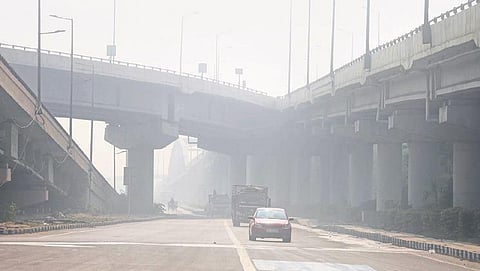

NEW DELHI: The Delhi government on Tuesday reviewed the much-talked-about ‘real-time source apportionment study and pollution forecasting’ project with a team from Indian Institute of Technology (IIT)- Kanpur along with other partner organisations, said Environment minister Gopal Rai.
The environment department and the Delhi Pollution Control Committee (DPCC) held the second review meeting approved by the Delhi Cabinet for which an MoU was signed in October last year, said a statement.
A team of IIT-Kanpur, IIT-Delhi, The Energy & Resources Institute (TERI) and IISER Mohali will execute the study. The DPCC has been appointed as the nodal agency for looking after the execution of the project.
Air pollution has been plaguing the city for long, with winter becoming synonymous with high air pollution levels almost choking citizens. So far, Delhi did not have its own emissions inventory and hence, the study was commissioned by the government in 2019.
“We are extremely glad that the IIT- Kanpur study is progressing well on time despite the occasional disruptions caused by Covid-19. I congratulate the team and DPCC for setting up good programme management mechanisms to ensure timely progress. We look forward to receiving the results of the study in the next few months,” Rai said.
The project will help identify the factors responsible for the spike in air pollution at any given spot in the city. It will help understand the real-time impact of various pollution sources such as vehicles, dust, biomass burning, stubble burning, and emissions from industries among others.
“Based on the results obtained, the government will be able to take the necessary actions to curb the sources of pollution. This will go a long way in identifying the various factors contributing to pollution and addressing those factors,” the minister said.
Reena Gupta, advisor to Rai, said that currently due to the absence of a reliable forecasting system, pollution monitoring agencies are bound to make decisions based on previous years records, rather than a forward-looking forecast.
unavailability of proper resources
Due to the absence of a reliable forecasting system, pollution monitoring agencies are bound to make decisions based on previous years records, rather than a forward-looking forecast